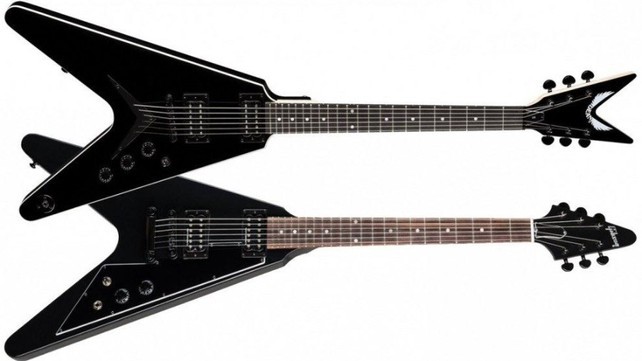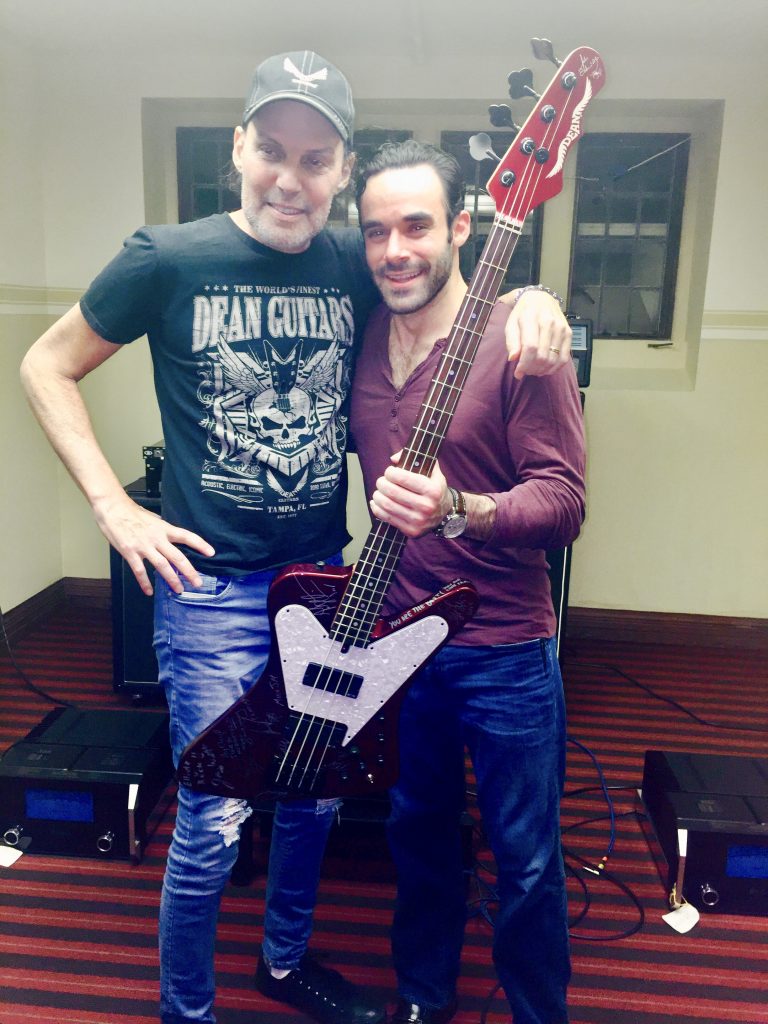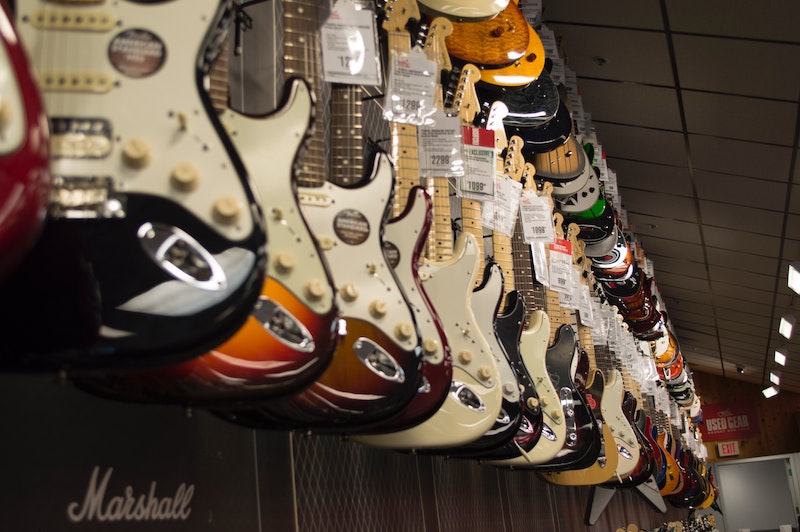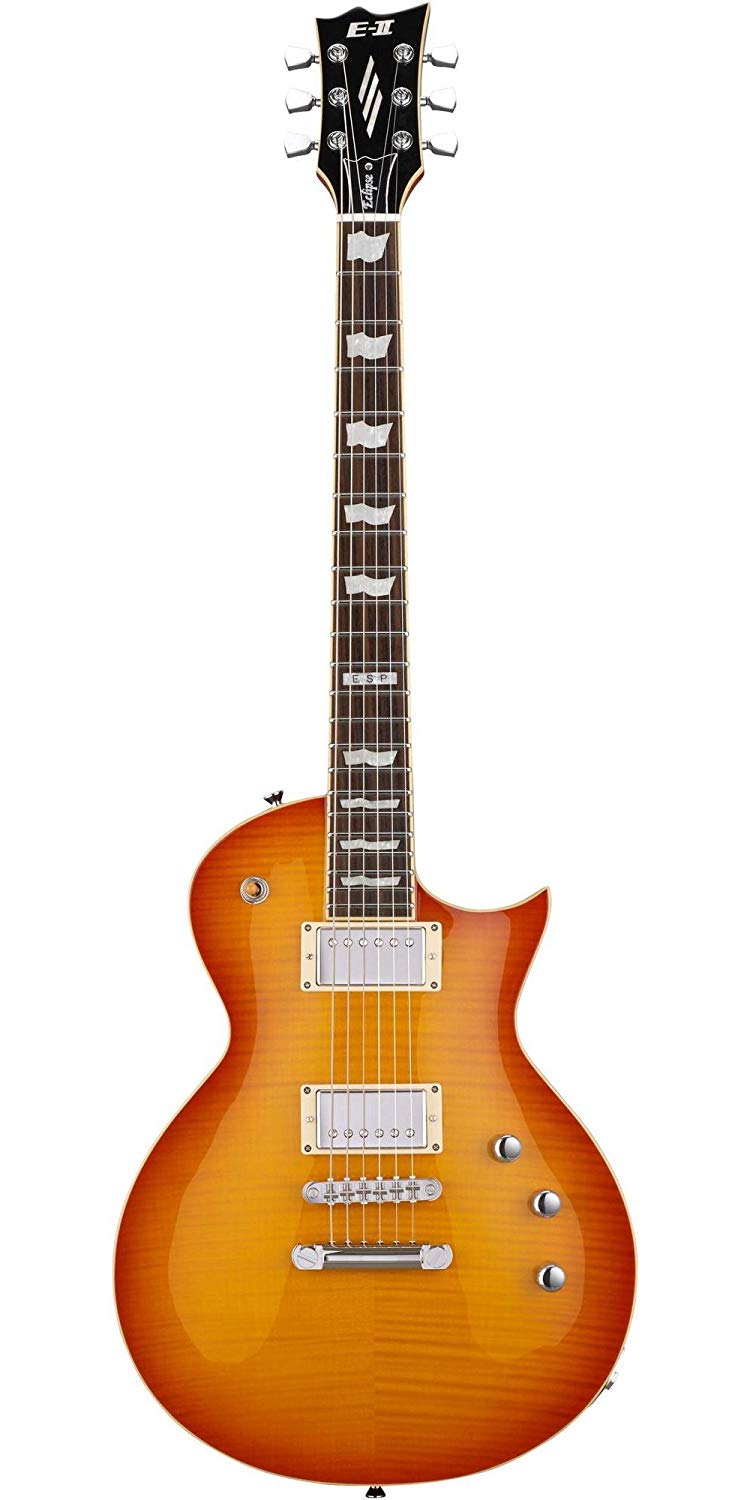
If you are into guitars like I am, chances are you’ve already seen plenty of articles about this topic. I debated whether I should add one more into the pile, and in the end I’ve decided to do so.
Quick note: I am in no way affiliated with either Gibson or Dean.
I’ve already talked about Gibson before. I talked at length about their financial troubles. It is not a secret that the old management, headed by former CEO Henry Juszkiewicz, made a lot of mistakes; not the least of which was ignoring legitimate consumer complaints on their flagship products. It got to a point where Gibson just couldn’t recover from all missteps. It declared bankruptcy in May of 2018, which it was later able to exit thanks to global investment firm KKR assuming majority ownership control. One way Gibson could exit bankruptcy was allowing KKR to assume control by converting debt Gibson owed them into stake in the company. Thus came the restructuring agreement that launched all the management change. KKR didn’t just want ownership; it also wanted a new management if they were to help Gibson escape bankruptcy. Henry Juszkiewicz was out, and James “JC” Curleigh was in as the new CEO. For all intents and purposes, Gibson had hit the reset button. Everything was in order to correct some mistakes and bring Gibson back into its heyday.
I’m not going to lie, I was excited too. I’ve never owned a Gibson, nor have I ever had any affiliation with them; but I wanted them to thrive again. Whether you play their guitars or not, they are an iconic American brand. No one gains if the brand goes away. Plus, high tides raise all ships. A stronger Gibson would create a more competitive environment and pushes every manufacturer to give consumers what they want at more competitive prices. A fresh start was needed and Gibson had finally got it.
JC Curleigh spent some time on a charm offensive. Every time I logged into YouTube or came across new articles on guitar magazines, there he was updating people on what the new management was doing. And to be fair, it sounded good to me. He talked about focusing on the guitars and not consumer electronics, he talked about improving quality, and he took some steps to streamline Gibson’s product lines to avoid confusion. It seemed to me like he understood genuine consumer concerns and was willing to address them. It all looked like Gibson was finally ready to shift their focus where it needed to be: quality.
All those thoughts came to a halt when I found out Gibson had sued Armadillo Enterprises. A few days prior to the lawsuit becoming public, Mark Agnesi, Director of Brand Experience at Gibson, released a video and “warned” manufacturers whom he alleged were engaging in trademark infringement. The video backfired quickly and the video was pulled soon after. But in the next few days, we all saw Gibson wasn’t kidding around.
Armadillo is a company founded by the late Elliot Rubinson and is the same company that today owns brands like Dean Guitars, Luna Guitars, and ddrum. While Gibson is technically suing Armadillo Enterprises, since the majority of the allegations are concerning the Dean brand, I will sometimes use Armadillo and Dean interchangibly.
The lawsuit is serious as it accuses Dean of trademark infringement, trademark counterfeiting, unfair competition, and trademark dilution. While there are differences among them, ultimately they accuse Dean of the same thing. It alleges that Dean copies various Gibson trademarks and this, in return, causes confusion among consumers. Needless to say, there are tons more intricacies with these lawsuits – and you can read a lot more detail from some of the sources I cite at the end of the article – but it all boils down to that.
Since you’ve already seen this topic before, instead of going into the details of the lawsuit itself, I’m going to address wider industry concerns the way I see them. I’ve read and watched tons of content on this so I have a good idea on what the main discussion topics have been. I think one area that has been overlooked is how the industry would look if a court decision favors Gibson. So, let’s start by grouping some of the arguments that most guitar enthusiasts, reviewers, and YouTubers have been making. I will address each of those with my own two cents.
1. Mark Agnesi should not be criticized. After all, he had to do his job.
I disagree with this sentiment. Of course, you can’t put all the weight of the lawsuit on him. He doesn’t make those decisions on his own. But at the end of the day, he took this job at Gibson and he had no problem saying those words in the video that was released a few days before the lawsuit. For years, Agnesi shot videos as the manager of Norman’s Rare Guitars. In some of those videos, he played and talked about Ibanez’s and Dean’s interpretations of Gibson shapes with no problem… you know, the shapes that are being sued now! He didn’t have a problem playing them in his videos, but a few years later, he was telling others what they should or should not play. While he doesn’t deserve all criticism, the “oh, it was just his job” argument makes no sense.
2. This all started with the previous administration. Let’s not criticize the current one.
This is the shallowest argument used in Gibson’s defense. It’s not even an argument… it’s a non-sequitur. It’s irrelevant. Yes, we all know there was a cease-and-desist letter sent to Armadillo before the new management at Gibson took over. But that doesn’t mean the new administration had to go ahead and file the lawsuit. JC and his team are responsible for that. It’s fine if you agree or disagree with their decision. That’s your prerogative. But trying to absolve the new management of any responsibility because some other team sent a cease-and-desist letter earlier is not even what we’re talking about. The new management was supposed to start anew. It was supposed to be a new chapter in Gibson’s history. That’s what JC and his team claimed, anyway. They had no obligation to follow up with a lawsuit. They chose to do this. It doesn’t matter who started what.
3. Gibson will win / Gibson will lose
Nobody knows how this will play out in court, so it’s best not to make strong statements. Trademark law is complicated. To make matters even more complicated, Gibson is suing Armadillo over multiple lines of guitars; not just one. So, the decisions can vary depending on the case at hand. When it’s a legal issue, no reviewers or commentators should make bold declarations. I saw plenty that did – but it’s a mistake. You just have to wait and see. I can tell you what I hope. I hope Gibson loses. I’ve written more about this further down the article. Suffice it to say, the idea that Dean’s shapes are “confusing consumers” makes no sense whatsoever. Dean’s been making those guitars for decades. How come they weren’t confusing in all previous decades? Furthermore, if Gibson wins, the implications will reach far beyond Dean and affect the consumers negatively. But, again, things play out differently in courtrooms. So, I go back to my original point. Stay away from bold statements on this one.
4. Financially, it makes sense. Gibson wants to recoup lost money.
I don’t see how this makes sense. You see this argument time to time. Gibson came to the brink of bankruptcy and avoided it at the last minute by giving KKR control of the company, not because Dean and others were making similar guitars to theirs, but because they weren’t making the right business decisions. It is lazy to blame Gibson’s financial losses on other players in the market. Gibson already had one of the biggest consumer bases in the industry. Body shapes that originated from Fender are also widely used, how come Fender hasn’t gone through financial troubles in the last 10-15 years?
KKR made a big investment. They essentially took over Gibson’s debt in return for controlling stakes. It is natural for every company to want to become profitable again. But think about it for one second. Do you really think the best way to accomplish that is to pay for all these legal fees that you don’t know you can get back, cause all this PR backlash, piss off huge segments of guitarists (most of whom are from the younger generation and will make bigger purchasing decisions as their disposable income increases), and put all your eggs in the lawsuit basket? Why would a company who’s hurting financially want to take this risk when things had just started to look good again? JC Curleigh already had some positive steps towards getting to a healthier financial standing and I’m sure he’s pushing for more. This legal action, however, is not one of those.
5. Dean’s guitars in question look identical to those of Gibson
No, they do not. Yes, some of them look awfully similar. We can all see that. But the word “identical” indicates two things being exactly alike. It’s not true in this case. Of course, from a legal standpoint, two things don’t have to be exactly alike for a company to win in court; but that’s a totally separate topic.
6. Gibson is not the only litigious company. Fender has sued Schecter, for example. Why do we only focus on Gibson?
I think it’s a fair question. It’s true; Gibson is certainly not the only major guitar manufacturer that has sought legal action. I think one reason why we focus on Gibson at the moment is because this is the most recent news. There’s not much to talk about with regards to Fender since the company tried to go after multiple manufacturers, including Schecter, in the late 2000s.
Fender lost its case because the court ruled that shapes like the Stratocaster and Telecaster “have been so widely used for so long in the U.S. music industry that Fender alone does not own them.” Similar decision came out against Gibson itself in 2005 when it tried to go after PRS for its single-cut guitars.
The difference between FMIC (the company that owns Fender, among others) and Gibson in the last 10 years, though, is striking. I don’t know what Fender may do in the future; but in the last 10 years, instead of obsessing over what other manufacturers are doing, they are focusing on what they can do internally. The reviews have been positive. People don’t seem to complain about Fender’s quality as much as they do about Gibson’s. The management at Fender seem to have learned about what the consumers are actually looking for. I understand people want to make these comparisons because Fender has been litigious too. But I don’t see how that argument can be used to defend Gibson’s current actions.
7. Should Gibson not go after anyone? What about the Chibsons of the world?
Even the fiercest critics of Gibson do not, and should not, dispute the fact that the company, much like any other company, is entitled to protect its assets. The question here is how to execute that strategy and what is fair action and what isn’t. So, let’s begin by addressing this. At the end of the day, my objection is to the Armadillo lawsuit. It harms the guitar industry unfairly and is bad for competition.
The Chibson issue is different altogether. Chibson is a nickname that refers to various types of counterfeit Gibsons from Chinese factories. First of all, grouping Chibson and Dean together is dishonest. They’re not the same thing. In some of these Chibsons, you’ll sometimes see the Gibson brand name on the headstock, i.e. deliberately seeking confusion, or avoiding a brand name altogether. It’s not a Gibson, but in most cases, it says so on the guitar or it doesn’t cite any brand name at all. So, these knockoffs have no identity of their own other than copying Gibsons. Dean, on the other hand, was started by Dean Zelinsky who built his guitars himself. That’s the root of the company. It’s irrelevant if you like Dean or not. The fact is, they have their own brand name and, over the years, built their own fan base and an artist roster that expect a certain quality. How is that the same thing as Chibson? Gibson, Fender, Ibanez, etc. should all go after the Chibsons of the world. But let’s not confuse that with smaller manufacturers who have built their own brand and their own take on the instruments. Otherwise, where would you put ESP, Schecter, PRS, and all the others?
8. What action is Dean taking at the moment?
Right off the bat, Armadillo Enterprises CEO Evan Rubinson said that the company was going to defend itself in court. It didn’t stop there. On July 10th, reports indicated that Dean had countersued Gibson, alleging “tortious interference with Armadillo’s business relationships and/or contracts”. Armadillo also alleges that the guitar shapes in question have been in the market for decades, “all the while, Gibson sat on its purported rights and failed to object.”
Armadillo also alleges that Gibson has been threatening Dean dealers with legal action. The company says some dealers are now afraid to deal with Dean because of the pressure from Gibson. If proven, this could be troublesome for Gibson. Dean has already made one dealer public with such allegations. Again, it’s too early and too complicated for reviewers to say anything big. We’ll have to wait and see how all this unfolds. Suffice it to say Dean is not taking any of this lightly.
9. What has Gibson been up to after all of this?
Gibson is in complete damage control mode with varying degrees of success. I’m not a Gibson hater by any means but after they sued Armadillo, I’m taking everything they do with a grain of salt. A lot of the new moves will never come across as sincere to me unless they pull this lawsuit.
First thing to address here is that Gibson has now realized the original Agnesi video was a mistake. They pulled it rapidly – that’s one indication right there. That’s a positive step.
The other thing they’ve done is they’ve announced a new program under which Gibson would license its designs to boutique builders so they can use them to build their own. The company says they want to shift from “confrontation to collaboration”. I don’t buy it. They’re still not addressing why Armadillo is being sued after they’ve been making some of these guitars for 40 years without Gibson’s objection for decades. Second, this doesn’t necessarily benefit boutique builders anyway. They will have to build these guitars under Gibson’s conditions. Gibson will certainly collect a portion of their paycheck as licensing fee or some other fee of that kind, and Gibson will still be able to stop licensing any time the agreement comes to an end. How does a builder sustain profitability with such risks and limitations?
10. What is the best outcome?
Well, I suppose the answer depends on whom you ask. Since this is my article, I’ll tell you what my opinion is.
First thing first… I object to this lawsuit not because I have any affiliation with Dean Guitars or bias against Gibson. I would object to it if it came from Fender too. I object to this because it’s bad for the industry overall and it’s certainly bad for consumers. If you don’t see that, you’re not looking hard enough. If Gibson wins this, do you think they will stop there? They’ve already sued PRS in the past. What stops them from doing it again, but this time with a new legal precedent? What about ESP? The company changed its Eclipse design in the past to avoid legal action from Gibson. But it still looks “similar” to Gibson’s Les Paul. After all, we now know strong similarity is enough for Gibson to sue. Why would they refrain from taking action if they have a precedent? What about Schecter? Jackson? What does the guitar market look like to you with diminished competition from these players?
The best outcome, in this case, is for Gibson to pull its lawsuit and for Dean, then, to do the same. Gibson should focus on its own issues and carve out a longer-term financial plan that will make the company profitable by focusing on their production, customer feedback, and changes in player trends. They’d already started doing all of this under JC Curleigh – why not take it to a whole new level?
The problem with a lawsuit as a way of recouping money is that it’s a one-time thing. Even if Armadillo pays them a certain amount as a settlement, that doesn’t mean Gibson will be profitable from then on. They’ve already alienated a big chunk of the consumers. You may think people usually forget, but the Internet would beg to differ on that. I said something in my other article regarding Gibson. I want them to thrive. They’re an iconic brand and a stronger Gibson benefits everyone in the market. But they won’t be stronger with moves likes this. I think it’s a mistake to think once Gibson wins this lawsuit they will be fine financially. Not necessarily. They already didn’t have a lot of cash, and now they’ve decided to put a considerable portion of what they have in litigation. Even if they win, I don’t see how that forms a solid long-term strategy; especially after having alienated a huge segment of consumers, most of whom, in the future, would make Gibson’s target market.
I don’t know how this will end. There are certain court rulings that suggest Gibson’s job is very difficult. PRS initially lost when Gibson sued them in the early 2000s, but then appealed and won. I’ve put a link to the Appeals Court’s decision in my references. Fender lost, or sometimes decided against, similar lawsuits. In no way am I making a prediction on how this one will go – I am not a legal expert by any means – but looking at similar cases, Gibson’s job is not easy. Similarly, and more recently, a European Union Court rejected Gibson’s application to trademark the Flying V shape. The Court argued that while in 1958 the Flying V shape was an “original”, the same could not be said today after decades of various manufacturers making similar guitars. Of course, a European Court decision is not binding in the US, but that just goes to show you how tough this is after decades of not taking any legal action. I guess we will all wait and see…
Sources & Additional Reading:
- Gibson sues Dean Guitars over alleged trademark infringement
- The key dates leading up to Gibson’s lawsuit against Dean Guitars
- Gibson loses Flying V trademark case in EU court
- Gibson Guitars Names New Leadership And Exit From Bankruptcy
- GIBSON GUITAR CORP v. PAUL REED SMITH GUITARS LP, United States Court of Appeals,Sixth Circuit
- Fender Loses Lawsuit, 5/14/2009






